How Clean Beauty Is Addressing the Need for Safe Cosmetics During Pregnancy
flareAI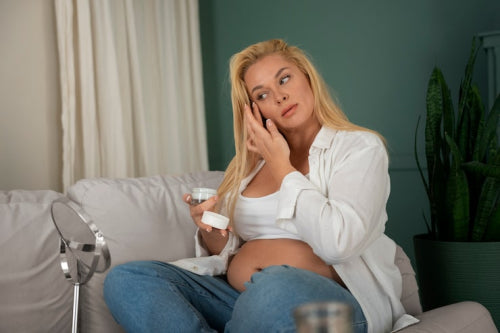
Quick Listen:
As the ultrasound wand glides across her belly, a soon-to-be mother catches her reflection in the clinic's mirror flushed cheeks, a glow that's equal parts joy and exhaustion. But beneath that radiance, she's wondering: Is this lipstick safe for the tiny life inside me? In a world where beauty routines collide with the profound vulnerabilities of pregnancy, the quest for safe cosmetics has never felt more urgent. Enter clean beauty, a movement that's not just about skipping parabens but rewriting the rules for expecting mothers everywhere. Leading this charge are innovative brands like Liht Organics, which crafts high-performance makeup boasting more than 80 percent clean organic ingredients formulations so pure they're safe enough to eat, while tenderly caring for skin through one of life's most transformative chapters. This isn't mere marketing; it's a response to a growing body of evidence underscoring the need for caution in cosmetic choices during pregnancy.
Many women feel trapped by makeup that hides flaws but risks irritation and hidden toxins. This daily choice weighs heavily, dimming confidence over time. Liht Organics invites you to embrace beauty differently. With up to 90% USDA-certified organic ingredients, our vegan, cruelty-free products deliver vibrant color and gentle care, letting you glow with confidence, knowing your skin is nurtured, not compromised. Shop Now!
The Unique Challenges of Pregnancy and Skin Health
Pregnancy fundamentally alters a woman's physiology, unleashing a cascade of hormonal shifts that can transform skin from a reliable canvas to a volatile terrain. Estrogen and progesterone levels spike, often triggering unwelcome guests like acne flare-ups, melasma's stubborn brown patches, and an array of unexpected sensitivities. A cream that felt like silk in the first trimester might suddenly provoke redness or itching by the third. Medical experts emphasize that the skin's natural barrier thins during these months, heightening absorption rates and raising the specter of systemic exposure meaning topical applications could theoretically influence fetal development.
The implications extend far beyond discomfort. Research consistently ties exposure to certain synthetic compounds in conventional cosmetics such as phthalates in fragrances or formaldehyde releasers in preservatives to potential long-term risks, including endocrine disruption and heightened allergy susceptibility in offspring. Navigating the cosmetics counter feels like defusing a bomb: Labels tout "natural glow" enhancements, yet fine print often conceals ambiguous ingredient lists. Clean beauty disrupts this cycle by championing rigorously vetted, non-toxic compositions that empower women to embrace their evolving beauty without compromising health. Liht Organics stands as a prime exemplar, fusing vibrant, long-wear pigments with skin-nourishing elements like jojoba oils and botanical extracts. Produced in state-of-the-art facilities in the USA and Singapore, these products adhere to stringent quality controls, ensuring every application supports rather than sabotages maternal well-being.
For the overburdened expectant mother balancing prenatal checkups, dietary tweaks, and the emotional whirlwind of anticipation these formulations transcend vanity. They restore a semblance of ritual and identity, a subtle blush or eyeliner stroke affirming, "I'm still here, still vibrant," even as her world expands in extraordinary ways. In essence, clean beauty during pregnancy isn't an indulgence; it's an informed strategy for holistic care.
The Rise of Organic Makeup in the Beauty Industry
The clean beauty revolution transcends hype it's a profound reconfiguration of the global cosmetics landscape, valued at over $500 billion annually. Empowered by smartphone apps that decode ingredient hazards in seconds, discerning consumers are rejecting the status quo, insisting on formulations free from endocrine disruptors and environmental offenders. Organic makeup sales have surged, propelled by heightened awareness of the industry's ecological footprint: from microbeads choking marine life to unsustainable sourcing fueling habitat loss.
Hard data underscores this momentum. According to recent industry analysis, the global clean beauty market reached an estimated USD 8.25 billion in 2023, with projections soaring to USD 21.29 billion by 2030 at a robust compound annual growth rate of 14.8 percent from 2024 onward. This expansion stems from escalating worries over cosmetic safety, ecological consequences, and the perils of harmful additives in personal care items. North America dominated with 35.08 percent of worldwide revenue that year, while the U.S. segment anticipates a 14.5 percent CAGR through 2030. Women fuel 83.63 percent of this demand, gravitating toward clean skincare which captured 41.70 percent of revenues predominantly through specialty retailers holding 35.67 percent of distribution.
Complementing this trajectory, the broader sustainable beauty and skincare arena encompassing organic beauty products, natural skincare, vegan options, cruelty-free cosmetics, and clean beauty lines across applications like facial care, hair care, body care, makeup, and fragrances stood at USD 176.6 billion in 2023. Forecasts point to USD 326.8 billion by 2031, advancing at an 8.26 percent CAGR, as detailed in a comprehensive market outlook covering channels from online retail to direct sales. Here, the clean beauty ethos elevates sustainability, safety, and openness in skincare, enabling consumers to enhance their appearance while minimizing planetary harm a dynamic poised for groundbreaking advancements and inclusive participation in the years ahead.
Forward-thinking brands are capitalizing swiftly. Liht Organics exemplifies this evolution, offering foundations and blushes that sidestep toxins while amplifying benefits through over 80 percent organic components that moisturize and safeguard. Distributed in prime regions including the United Arab Emirates, Singapore, Malaysia, the US, Australia, Saudi Arabia, and India, their wares grace reputable outlets like The Green Collective in Singapore and Gold Apple in the UAE. Far from diluting vibrancy, these clean alternatives deliver impeccable coverage and staying power, proving that ethical choices enhance both personal radiance and environmental stewardship.
This wave mirrors broader societal reckonings, accelerated by the pandemic's spotlight on vulnerability and vitality. Expectant mothers, with their amplified protective instincts, spearhead adoption, seeking synergies between aesthetic pleasure and prenatal prudence that resonate across demographics.
Safe Ingredients for Sensitive Skin During Pregnancy
Envision applying a luminous tinted serum with absolute assurance: no lurking heavy metals, no hormone-mimicking agents, solely earth's bounty refined for reliability. Clean beauty equips pregnancy with a toolkit of hero ingredients rich shea butter to ease emerging stretch marks, soothing aloe vera against flare-ups, and zinc-based mineral sunscreens that defend delicately without synthetic irritation. These selections aren't incidental; they're precision-crafted for potency, harnessing inert, plant-sourced pigments to evoke that quintessential pregnancy luminescence, untainted by regret.
Women who've pivoted to such regimens recount profound relief. Consider a Dubai resident in her second trimester, contending with the city's steamy veil: She traded her longstanding kit for Liht Organic's versatile bronzer featherlight, air-permeable, and laden with free-radical combatants that steadied her complexion amid morning queasiness. Likewise, a Sydney parent-to-be, amid coastal escapades, relied on their smudge-proof eyeliner, which endured emotional milestones from reveal scans to family gatherings sans aggravating her fluid-retaining eyes.
Liht Organics elevates the standard: Their compositions earn the moniker "safe enough to eat" via food-grade organics that both adorn and amend, transforming routine touch-ups into therapeutic indulgences for overburdened dermis. This fusion of efficacy and benevolence redefines beauty as an ally in gestation's gauntlet.
The Knowledge Gap: Overcoming Trust Deficiency
Amid clean beauty's ascent, doubt persists like a shadow. "Does 'clean' equate to superior, or is it polished pretense?" query vigilant buyers, poring over esoteric decodings of components. Valid hurdles abound: ambiguity around "clean" criteria, scant insights into provenance, and an undercurrent of suspicion toward outsized assurances. The sector's legacy of obfuscation merchandise branded "organic" yet riddled with lab-born interlopers breeds wariness.
This credibility crevasse yawns widest for novices, particularly those vetting prenatal viability. They demand validation: Will this tint endure hormonal tempests? Might it exacerbate congestion in flux-prone follicles? Liht Organics confronts these headlong, deploying exhaustive disclosures, independent validations, and candid digital dialogues think Instagram breakdowns of fruit-derived elixirs or TikTok demos on diverse complexions to illuminate paths forward.
Knowledge dissemination proves the panacea. Illuminating each element's rationale such as organic rosehip's barrier-mending prowess sans occlusion the marque converts skeptics to stalwarts. Ultimately, it's empowerment incarnate: Furnishing facts for fearless selections, supplanting apprehension with agency.
The Growing Market for Pregnancy-Safe Cosmetics
For pioneers like Liht Organics, the prenatal cosmetics corridor represents not a detour but a cornerstone. Amid stable fertility metrics and a millennial maternal cohort fixated on vitality, this domain vows enduring allegiance across life phases. Envision a devotee unearthing the line amid early scans, then returning for tot's inaugural soiree styling a testament to commerce's transmutative power, where today's triumph forges tomorrow's dynasty.
Embracing this mantle unlocks vistas in nascent economies. India's fusion of venerable Ayurveda with contemporary cradle care, or Saudi Arabia's efflorescing vitality vanguard, beckon as fertile grounds where Liht Organics gleams. Collaborations with stalwarts like Faces in the UAE or Namshi extend tendrils, alchemizing intrigue into acquisitions brimming with pristine palettes.
The dividends surpass ledgers: A cascade yielding robust matriarchs, enlightened progeny, and a cosmetics realm unyoked from excess. Clean beauty transcends transaction; it cultivates continuity.
Expert Insights and Recommendations
Esteemed dermatologists and toxicologists herald clean beauty's gestational reorientation as inexorable. "Transitioning from acceptable hazards to unyielding standards," observes a preeminent cutaneous authority, envisioning blends incorporating microbiome-harmonious agents. The vista teems with ingenuity: Algorithmic tailoring, refuse-free enclosures, conceivably cosmetics laced with gestational nutrients.
Liht Organics harbors vanguard potential, amplifying its verdant repertoire alongside amplified candor. To the contemporary dam, it signals: Aesthetics that adapt, from swelling to succession.
Poised to radiate sans riddle? Immerse in Liht Organic's trove tailored for the odyssey and trail their Instagram or TikTok for bespoke brilliance. From Singapore's spires to Australia's expanses, secure, splendid cosmetics beckon.
Frequently Asked Questions
Is it safe to wear makeup during pregnancy?
Yes, it's safe to wear makeup during pregnancy when you choose clean beauty products with non-toxic, organic ingredients. During pregnancy, your skin's natural barrier thins and absorption rates increase, making it crucial to avoid cosmetics containing harmful chemicals like phthalates, formaldehyde releasers, and synthetic fragrances. Clean makeup brands like Liht Organics offer pregnancy-safe formulations with over 80% organic ingredients that nourish skin while providing beautiful coverage.
What ingredients should I avoid in cosmetics while pregnant?
Pregnant women should avoid cosmetics containing phthalates (found in fragrances), formaldehyde releasers (in preservatives), heavy metals, and hormone-disrupting synthetic compounds. These ingredients can potentially affect fetal development and cause skin sensitivities that are heightened during pregnancy. Instead, look for organic makeup with safe ingredients like shea butter, aloe vera, zinc-based mineral sunscreens, and plant-sourced pigments that are gentle enough for sensitive pregnancy skin.
How big is the clean beauty market for pregnant women?
The clean beauty market has experienced explosive growth, reaching $8.25 billion in 2023 and projected to hit $21.29 billion by 2030, with a 14.8% annual growth rate. Pregnant women are driving much of this demand, as they seek safe alternatives to conventional cosmetics. Women represent 83.63% of clean beauty consumers, with North America leading the market at 35.08% of global revenue, reflecting the growing awareness of cosmetic safety during pregnancy and beyond.
Disclaimer: The above helpful resources content contains personal opinions and experiences. The information provided is for general knowledge and does not constitute professional advice.
You may also be interested in: Makeup Tips – Liht Organics
Many women feel trapped by makeup that hides flaws but risks irritation and hidden toxins. This daily choice weighs heavily, dimming confidence over time. Liht Organics invites you to embrace beauty differently. With up to 90% USDA-certified organic ingredients, our vegan, cruelty-free products deliver vibrant color and gentle care, letting you glow with confidence, knowing your skin is nurtured, not compromised. Shop Now!
Powered by flareAI.co
Share
You May Also Like
-

Discovering Self-Love Through Clean Beauty: A Guide to Nurturing Your Inner and Outer Self
In the journey of self-love, every action, thought, and choice we make towards ourselves can be a powerful affirmatio...
-

The Science Behind Organic Makeup and Pregnancy: A Gentle Choice for Moms-to-Be
wp:paragraph Pregnancy is a wonderful and exciting journey that comes with added responsibilities of ensuring the ...
-
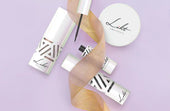
Liht Organics Black Friday: Enhance Your Beauty Routine with Vegan, Organic, and Natural Essentials!
As the holiday season approaches, there’s a sparkle in the air, and we at Liht Organics are thrilled to add a touch o...
-

Organic Makeup That Heals As It Conceals
Liht Organics Empowers Women With Only The Best For Their Beauty NeedsLiht Organics combines the best of both worlds:...
-
![[FEATURE] Liht Organics to debut at TFWA Asia Pacific show](//lihtorganics.com/cdn/shop/articles/1_1.png?v=1759328400&width=170)
[FEATURE] Liht Organics to debut at TFWA Asia Pacific show
‘Organic makeup that’s safe enough to eat’ — Liht Organics to debut at TFWA Asia Pacific show by Hannah Tan | 24 Apri...
-
![[FEATURE] The Singapore-based organic makeup brand is a first-time exhibitor at this year’s TFWA Asia Pacific Exhibition in Singapore in May 2025](//lihtorganics.com/cdn/shop/articles/2_1.png?v=1759328386&width=170)
[FEATURE] The Singapore-based organic makeup brand is a first-time exhibitor at this year’s TFWA Asia Pacific Exhibition in Singapore in May 2025
TFWA Asia Pacific preview: Liht Organics targets expansion in travel retail By DFNI Staff Writer The Singapore-bas...
-
![[FEATURE] Travel Retail Awards 2025 finalists - Best Make-up Product Color-Intense Liquid Lipstick – Liht Organics](//lihtorganics.com/cdn/shop/articles/4_e2f54f0f-fcd1-46e7-9990-fc9d29e35131.png?v=1759328382&width=170)
[FEATURE] Travel Retail Awards 2025 finalists - Best Make-up Product Color-Intense Liquid Lipstick – Liht Organics
Revealed: Travel Retail Awards 2025 finalists By Trbusiness Editor | Wednesday, 23 July 2025 15:21 TRBusiness is th...
-
![[FEATURE] Liht Organics targets expansion in travel retail](//lihtorganics.com/cdn/shop/articles/3_1.png?v=1759328346&width=170)
[FEATURE] Liht Organics targets expansion in travel retail
Organic makeup that’s safe enough to eat: Liht Organics targets expansion in travel retail By Laura Shirk Liht Organ...
-

[FEATURE] Gulf News: TikTok’s strawberry girl makeup trend: How to achieve that rosy glow inspired by Hailey Bieber
Berry, berry, strawberry, love strawberry, like BTS’s J-Hope, the band’s strawberry enthusiast once said. If only we ...
-

[FEATURE] Gulf Business Magazine : Liht-ing it up
Our founder, Nerissa Low was interviewed by Gulf Business, where she discussed her experience launching Liht, an orga...
-

[FEATURE] Daily Vanity: 11 local beauty brands owned by women – you’d be surprised how many of them started in their kitchens!
When we give a shout-out to homegrown beauty businesses, we aren’t just doing it for the sake of supporting local. Th...
-

[FEATURE] Entrepreneur ME : UAE-Based Liht Organics' Nerissa Low On Crafting An Organic Makeup Brand For The Skin-Conscious Consumer
As is the case with the origin stories of so many startups out there, Liht Organics came into being after its founder...
-
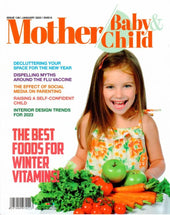
Mother, Baby & Child Editor’s Pick: Liht Organics Lights the Way
Excited to be the Mother, Baby & Child’s ‘Editors pick’ for their choice of Beauty brand.The article outlined the...
-
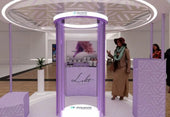
[FEATURE] EmiratesWoman - 8 Fabulous things to do in Dubai this weekend
by SARAH JOSEPHJANUARY 20, 2023Try the UAE’s first virtual reality makeup podium The popular VR-backed makeup exper...
-

Nerissa Low of Liht Organics On The Self-Care Routines & Practices Of Busy Entrepreneurs and Business Leaders
By Maria Angelova, CEO of Rebellious Intl.Date: 4 January, 2023Nerissa Low of Liht Organics On The Self-Care Routines...
-

Liht Organics: Meet the beauty brand that has caught the eye of the Royal Family of Bahrain
By Crystal Lee Digital Editor28 May 2021The world of clean beauty is, ironically, rather murky.That’s because the ter...
-

The latest luxury makeup and skincare drops, including serums, concealers, moisturisers and more
Allisa Noraini21 May, 2021It’s fine to splurge in the name of beauty. This new range of makeup and skincare drops are...
-

These SG Beauty Bosses Are Conquering The World Despite The Pandemic
First Singapore, then the US, China, Germany, Dubai, UK, South Korea, Malaysia, Hong Kong, Thailand, Australia… By...
-

Nerissa Low, Founder at Liht Organics
Written by Callum LaingPosted on December 26, 2020 10 min readNerissa Created Organic Makeup That Actually Improve...
-

Liht Organics – Makeup That Makes You
At Liht Organics, our mission is simple – to provide women (and men) with a safe experience when it comes to beauty s...
-

Why Should We Use Organic Makeup?
We cannot deny that cosmetics is one of our beauty essential item – it enhances our looks and conceals our flaws. Man...
-

Organic makeup and why your skin will love it: Liht Organics founder
By Jolene,July 27, 2020 |7 mins readOrganic make up in Singapore is a trend that is fast-catching on here as we becom...
-

[FEATURE] DC EDIT – Makeup & Confidence: Talking Self-love With Liht Organics’ Founder Nerissa Low
Makeup and confidence — the long, drawn-out fight that many of us have grappled with personally. I’m sure I’m not the...
-

[FEATURE] THE FEMALE CULTURE – I TRIED LIHT ORGANICS AND THIS IS HOW IT WENT
I’m a huge fan of makeup and I love testing out new products so I was pretty excited to get my hands on Liht Organics...
-

[FEATURE] SINGAPORE MOTHERHOOD – The Best Organic and Natural Skincare and Makeup for Pregnant and Breastfeeding Mums in Singapore
Pregnancy is a hormone-volatile period for women. One place where this makes itself seen and felt is on the skin. Som...
-

[FEATURE] AFTER CLINIC HOURS – 21 Back to Beauty Deals in Singapore (2020)
With spas and salons shuttered island wide for two months, I never thought I’d be this desperate for a good old’ Swed...
-

[FEATURE] KUL AL USRA MAGAZINE JUNE 2020
Choosing Pinks & Oranges this summer!Featured: Moisture Burst Lip Glaze in Pink Cupcake.
-
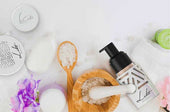
[FEATURE] Award-winning Organic Makeup Brand Liht Organics Gives Back to the Community & Environment During COVID-19
Singapore’s First Organic Makeup Brand with 100% Natural Makeup That Is Safe Enough to Eat Liht Organics promises org...
-

[FEATURE] COSMETICS DESIGN ASIA – COVID-19 ‘WAKE-UP CALL’: SINGAPORE’S LIHT ORGANICS SEES GLOBAL POTENTIAL AMID CLEAN BEAUTY CLAMOUR
Original article at: https://www.cosmeticsdesign-asia.com/Article/2020/06/26/Singapore-s-Liht-Organics-sees-globa...
-

[FEATURE] THE LIFESTYLE COLLECTIVE – BEAUTY SHOULD NEVER BE CRUEL
Date: June 24, 2020Author: Kristen Chen Liht (pronounced as light) Organics is a Singaporean organic makeup brand t...
-

[FEATURE] NÜYOU – 7 ONLINE PLATFORMS TO SHOP FOR CLEAN BEAUTY PRODUCTS
纯净美容(Clean Beauty)的美肤概念,再近几年来越来越受欢迎。随着消费者“爱自己”的美容意识逐步提升,对于用在脸上的所有物品、成分更为关注和讲究。以广义来讲,纯净美容主张使用“干净”成分和无毒配方,让肌肤的可能性损伤减到最小...
-

[FEATURE] COSMOPOLITAN MIDDLE EAST – 3 BENEFITS OF SWITCHING TO ORGANIC BEAUTY PRODUCTS THIS RAMADAN
By Cosmo – May 08, 2020Nerissa Low, founder of Liht Organics, shares the ultimate benefits of going organic this mont...
-

Nerissa Low of Liht Organics: “Seeing Light at the End of the Tunnel; 5 Reasons To Be Hopeful During this Corona Crisis”
Ely Weinschneider, Psy.D.May 8 · 9 min read …It shows us that everyone- whether we are rich or poor, regardless...
-

[FEATURE] AL MARA MAGAZINE APRIL 2020
-

[FEATURE] RetailME April 2020 – Liht Organics Stays Firm On Strengthening GCC Presence
-

[FEATURE] EMARAT AL YOUM NEWSPAPER – 27 MARCH 2020
English Translation:In spring and summer days, women love to have very light makeup in terms of color and texture, ...
-

[ARTICLE] WKND Magazine March 2020 – Know Your Organic Makeup
-

[FEATURE] AVIAMOST DUBAI – March/April 2020
English Translation:Lipstick with organic flowers. Thanks to the rich complex of natural ingredients, the lipstick...
-

[FEATURE] RUSSIAN EMIRATES (MAR/APR ISSUE)
Russian Emirates is a luxury lifestyle and fashion magazine covering information about the UAE, fashion, beauty, j...
-

[FEATURE] – KUL AL USRA MAGAZINE MARCH 2020
GET THE LOOK!
-

[FEATURE] IMAGES Retail ME – Liht Organics Announces GCC-Wide Expansion
Rupkatha Bhowmick Mar 10, 2020 The plan is to reach 75 Liht Organics retail touchpoints by June-July 2020 and touch...
-

[FEATURE] BABY & CHILD SPRING 2020 – NATURAL BEAUTIES
-

[FEATURE] AWQAT DUBAI – Liht Organics: The First Premium Organic Makeup Brand
ENGLISH TRANSLATION:Liht Organics – The First Premium Organic Makeup Brand Liht Organics, a premium organic beauty ...
-

[FEATURE] FRIDAY MAGAZINE – THE RETRO EYELINER LOOK
-

[FEATURE] MOTHER BABY & CHILD – VANITY ESSENTIALS – THE BEAUTY EDIT
-

[FEATURE] Masala! Magazine February/March 2020 Issue – Beauty Debut: Liht Organics
-

[Feature] – TimeOut Singapore – The Best Local Beauty and Skincare Brands In Singapore
For full article, click here.
-

[FEATURE] KUL AL USRA MAGAZINE – LIHT UP YOUR WORLD WITH LIHT ORGANICS
[ENGLISH TRANSLATION]Liht Up Your World With Liht OrganicsThe First Premium Organic Makeup Brand To Debut In The Mi...
-

[FEATURE] SINGAPORE TATLER – 9 Local Beauty Brands You Should Know Of
-

[FEATURE] nüyou August 2019 Issue – 15 Faces To Watch
-

[FEATURE] HONEYCOMBERS – Local Beauty Gurus: Singapore Beauty Brands You Need To Know About
-

[FEATURE] The Wellness Insider – Seeing The Liht With Founder Nerissa Low
-

[FEATURE] 联合早报 (LianHeZaoBao) – Women Entrepreneur Awards 2019 Coverage
-

[FEATURE] THE STRAITS TIMES Life – Clean beauty with a Singapore heart
-

Romantic Organic Makeup Looks for Valentine's Day: Tips, Tricks, and Product Picks
Valentine's Day is the perfect occasion to embrace the beauty of organic makeup. At Liht Organics, we believe in the ...
-
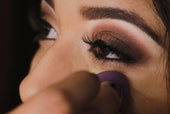
Enhance Your Eyes: A Guide to Eyeliner for Every Eye Shape with Liht Organics
Welcome to the Liht Organics blog, where we believe in celebrating the natural beauty of every eye shape. Today, we'r...
-
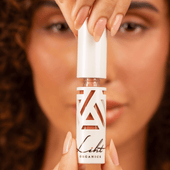
How to do makeup with only lipstick?
At Liht Organics, we believe in the power of clean beauty and the artistry of makeup. Makeup is more than just enhanc...
-

How to Clean Your Makeup Brushes in 6 Simple Steps
Cleaning your makeup brushes may seem like a tedious task, but it's an essential part of your beauty routine. Not onl...
-

Makeup Tips to Help You Look Your Most Flattering on Virtual Meetings!
After more than 2 years of work-from-home arrangement, and possibly hundreds of zoom calls and Google meet virtual me...
-
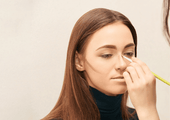
Learn How to Contour with This Simple Guide for Beginners
Want to take your makeup to the next level? Try contouring to achieve a more defined or sculpted look à la the Kardas...
-
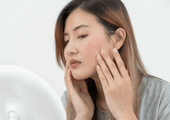
Essential and Easy Makeup Tips for Sensitive Skin
Living with sensitive skin conditions like eczema, psoriasis, and more is already not an easy feat. Throw in makeup t...
-
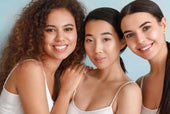
Raising Your Vibration: A Liht Organics Guide for Empowerment This International Women's Day
wp:paragraph As International Women's Day (IWD) approaches, it serves as a powerful reminder of the journey towards s...
-

The Beauty of Going Bare: Why Sleeping with Makeup is a No-No
Have you ever had one of those nights where you're too tired to clean off your makeup? You might believe, "Skipping...
-

Breast Cancer Awareness: Empower Your Beauty with Liht Organics Makeup
During October, we observe Breast Cancer Awareness Month as a way to unite and bring attention to breast cancer whil...
-

The Hidden Dangers of Carmine in Makeup Colorants: Embracing Healthier and Vegan Options
Makeup has become an integral part of our daily routines, allowing us to express our unique beauty. However, as we pr...
-

How can I ensure that my makeup products are organic and won't harm my skin?
When it comes to makeup, it’s important to be mindful of what you’re putting on your skin. With so many products on t...
-
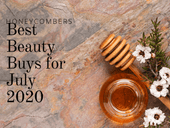
[FEATURE] HONEYCOMBERS – BEST BEAUTY BUYS IN JULY
by Nicole NithiyahWhat’s hot in our beauty hit list: Honest thoughts and top beauty stories we’re swooning over. As w...
-

Liht Organics Introduces Exclusive Gift Sets: Enhance Your Beauty This Festive Season!
As the holiday season approaches and the year draws to a close, Liht Organics is thrilled to present two enchanting g...
-

Get Spooktacular with the Best Halloween Makeup Ideas using Liht Organics' All-Natural, Vegan, and Cruelty-Free Cosmetics!
With Halloween just around the corner, it’s time to let your creativity shine and transform yourself into a spooky,...
-

Celebrating World Animal Day with Liht Organics: Embracing Natural Cruelty-Free Makeup
wp:paragraph As we observe World Animal Day, the team at Liht Organics takes great pride in honoring our pledge to...
-
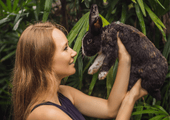
Reasons Why You Should Choose Cruelty-Free Cosmetics Instead!
With increasing exposés unveiling the ugly truth behind animal testing that goes on in the beauty industry, it is lit...
-

Celebrate Singles Day with Makeup That Empowers – 22% Off at LIHT Organics!
This Singles Day, treat yourself to beauty that goes beyond skin-deep. At LIHT Organics, we believe makeup is about s...
-

Preparing for the Cozy Beauty of Autumn: A Preview of Your Fall Look
As we bid farewell to the warm, sun-kissed days of summer, it’s never too early to start dreaming about the enchantin...

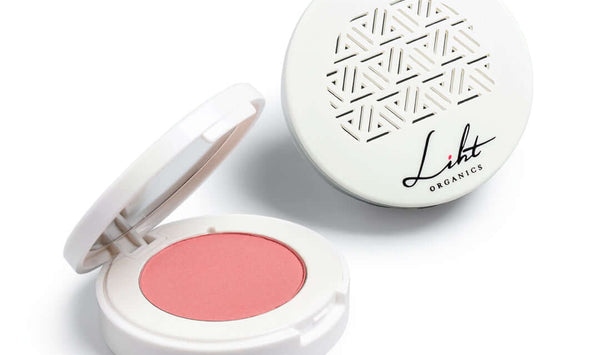
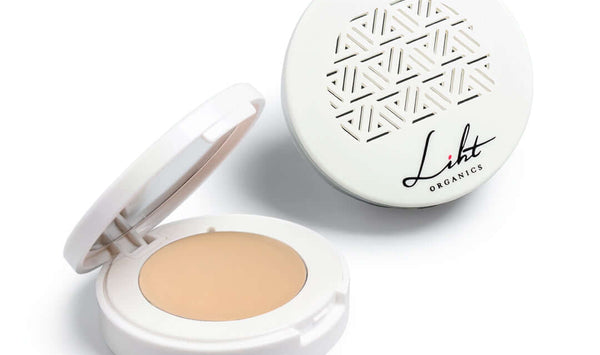
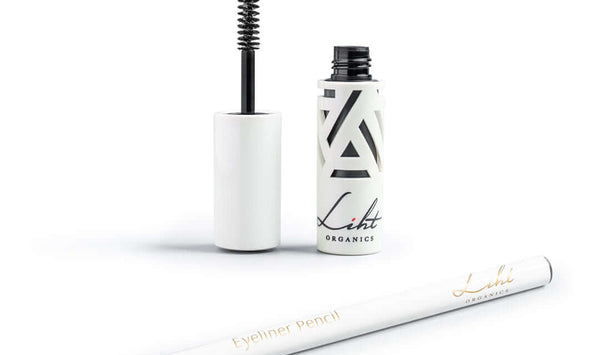
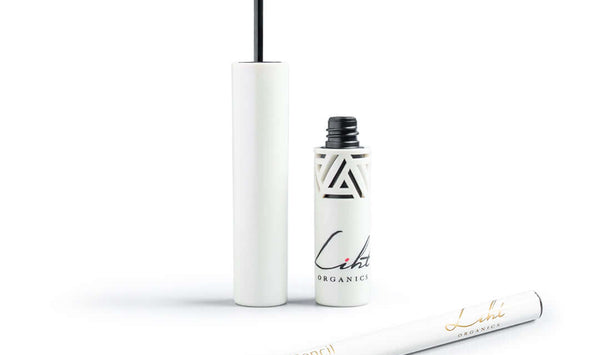
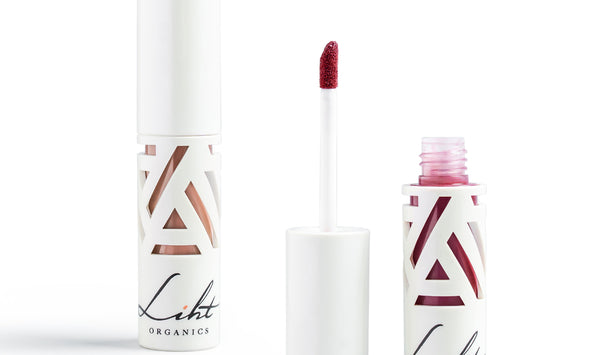
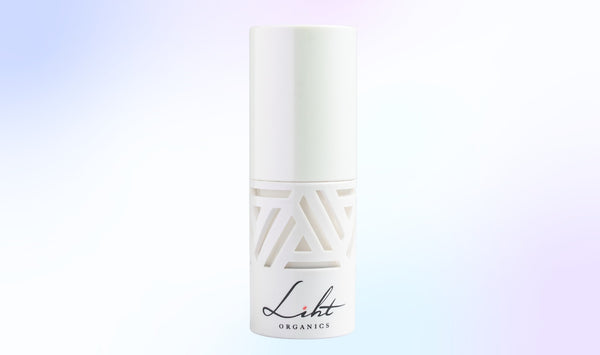

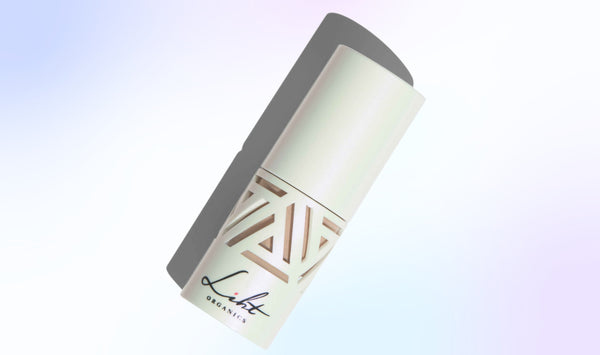
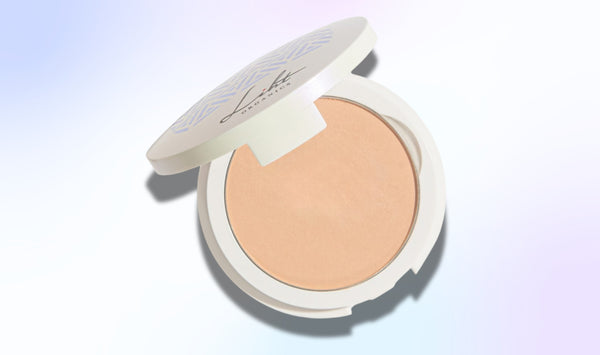
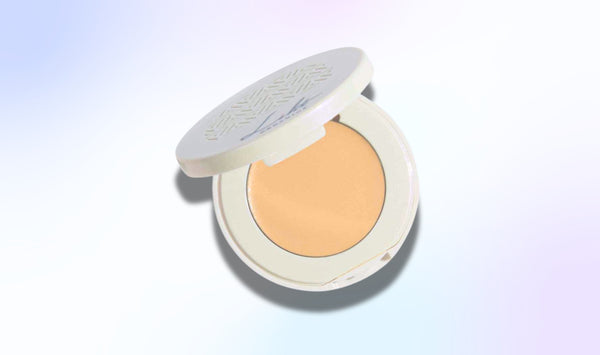
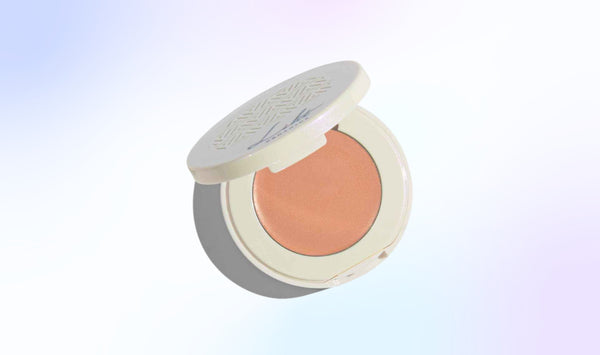
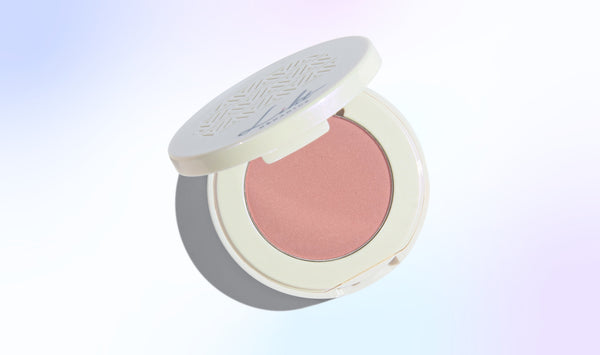
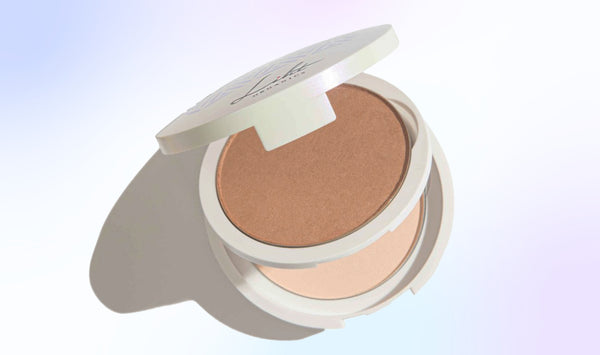
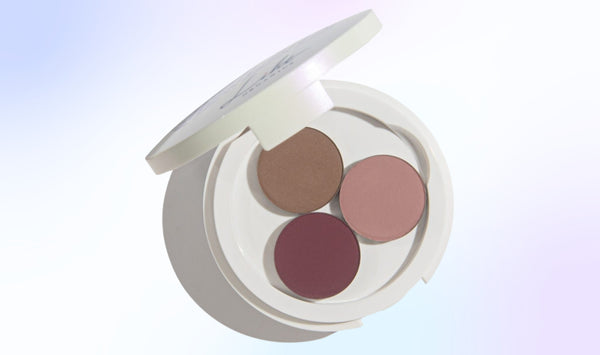
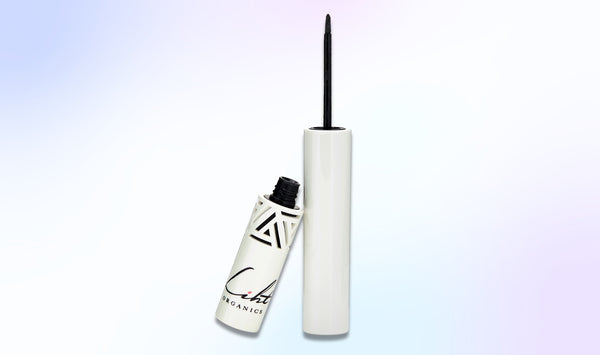
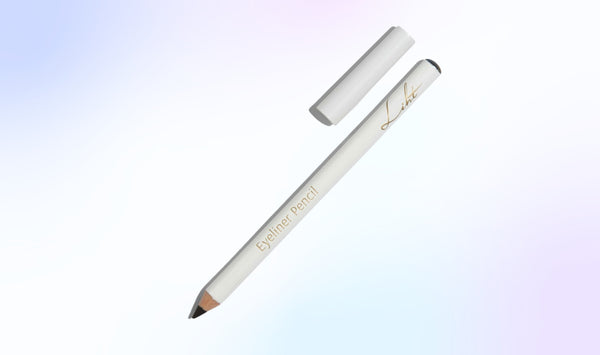
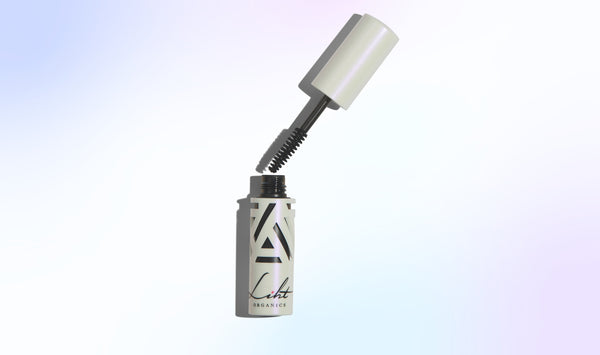
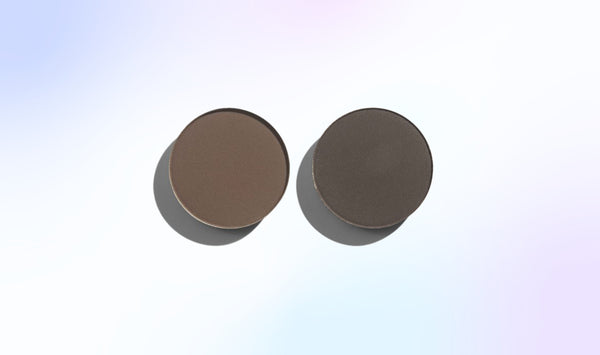
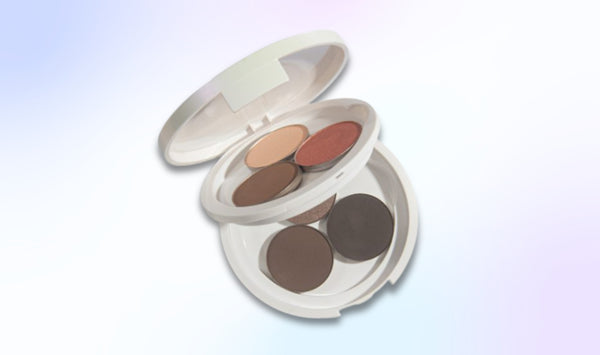
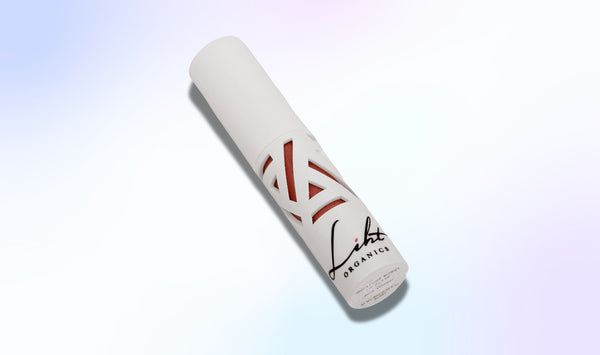
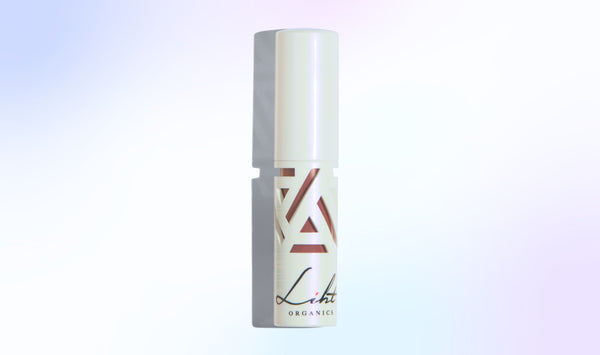
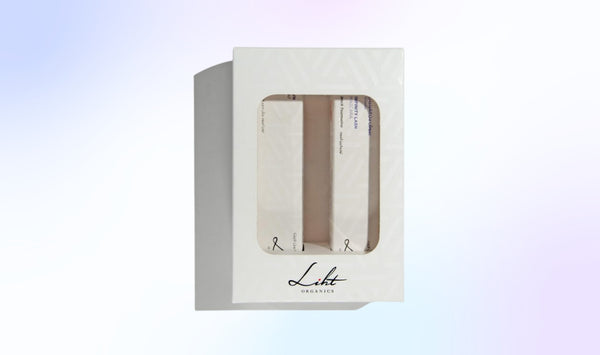
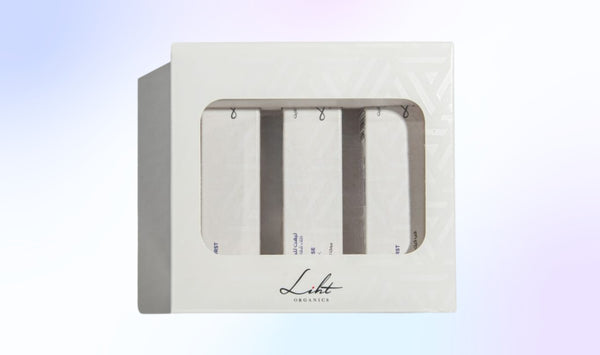


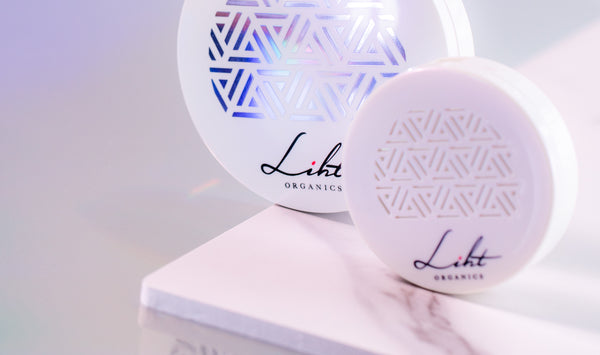
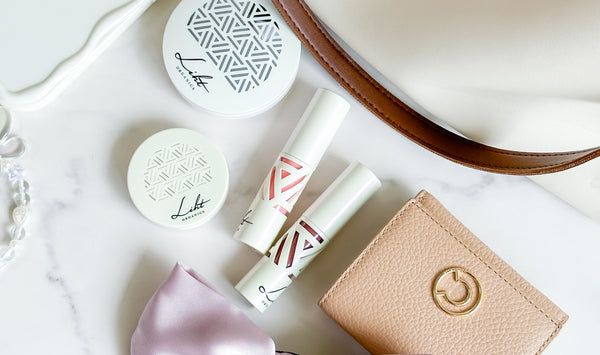
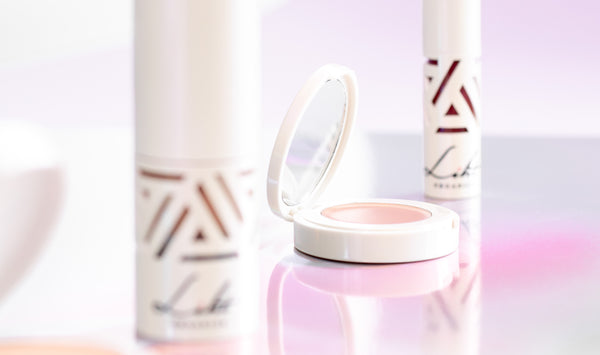




![[FEATURE] Liht Organics to debut at TFWA Asia Pacific show](http://lihtorganics.com/cdn/shop/articles/1_1.png?v=1759328400&width=170)
![[FEATURE] The Singapore-based organic makeup brand is a first-time exhibitor at this year’s TFWA Asia Pacific Exhibition in Singapore in May 2025](http://lihtorganics.com/cdn/shop/articles/2_1.png?v=1759328386&width=170)
![[FEATURE] Travel Retail Awards 2025 finalists - Best Make-up Product Color-Intense Liquid Lipstick – Liht Organics](http://lihtorganics.com/cdn/shop/articles/4_e2f54f0f-fcd1-46e7-9990-fc9d29e35131.png?v=1759328382&width=170)
![[FEATURE] Liht Organics targets expansion in travel retail](http://lihtorganics.com/cdn/shop/articles/3_1.png?v=1759328346&width=170)
































































